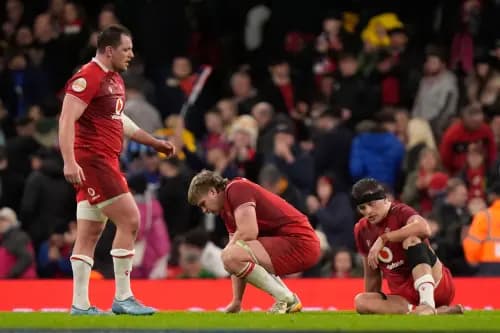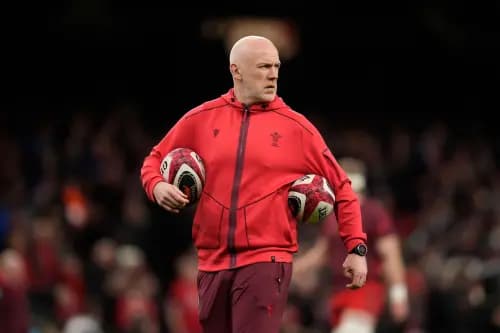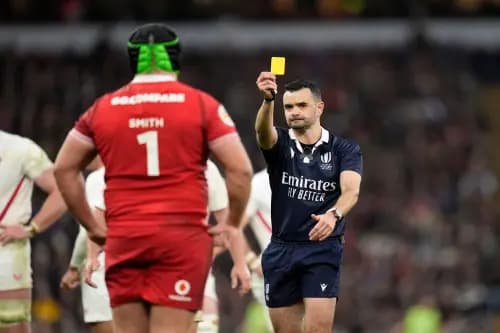Last Sunday’s Wales v Italy game was marked by more drink-related discontent inside the Principality Stadium. Graham Thomas says it’s time the WRU stopped being Cardiff’s worst pub landlord.
Michael Caine reckons the Sixties were ruined by drugs, an entire decade unreliably half-remembered by those who were actually there in the middle of all the action.
Those hazy fragments of recall have meant – says the 84-year-old actor, whose new film, My Generation is out this month – that most of it has to be entirely made up. “They’d start talking bollocks,” he says, “and keep going for hours, or else say nothing at all.”
Caine would, therefore, recognise the yawning gaps in the memories of many fans who attend Wales rugby internationals at the Principality Stadium. To paraphrase Max Boyce, they were there. But they only know that because of the ticket stub or blurred selfie that confirms their presence.
Herberts on the Sherbet.
Should @WelshRugbyUnion follow football’s rules and not allow drinking away from bar areas of the Principality Stadium?— Dai Sport (@Dai_Sport_) March 14, 2018
Of course, this has always been the case. Lost weekends have been the occasional habit of Six Nations-goers for decades. Old Max made an entire career out of rehashing them.
But the difference now is that the pub has migrated into the stadium – the gassy fartings, the sloppy spillages, the fetid decomposing food, the coarse language, chucked bottles and occasional flashes of temper and violence, it’s all now under the Principality Stadium roof, instead of spread through the drinking venues around the centre of Cardiff.
This is how it has been for Wales international games for a while, presumably the targeted outcome of the Welsh Rugby Union’s corporate strategy to maximize revenues – pre-match, post-match – it’s all been helpfully packaged up into one continual experience, the national stadium turned into the world’s biggest Wetherspoons.
Additional security measures this season have meant the WRU have issued strident demands that fans have to get inside earlier than ever before, where they’ll find staff at 17 stadium bars happy to take their money.
The consequence of turning the stadium into a giant rugby-themed bar has been marked.
The special atmosphere, that sense of shared anticipation as 70,000 people stare in the same direction, all hoping for the same thing to happen, has gone. In its place is a kind of low level pub drone, but not of a good pub – more of a crap pub – where the comings and goings of designated beer-carriers get in the way, where the shufflers and piss-seekers always seem to be in your field of vision.
Bad things tend to happen in pubs with a bad reputation – things like the head-butting of a steward at one of the November Tests and the vile verbal abuse directed at a disabled supporter and his family.
Or, what happened last Sunday during the Wales-Italy game, where a drunk invaded the press box and another – in a show of support, or irritation, it was hard to tell which – lobbed a pint which crashed into a desk, destroying two laptops and soaking people who always used to feel safe going about their job.
Don’t take this for a prudish crusade against alcohol. I like to lose the odd day myself, particularly once a year at Edgbaston, sat in the Eric Hollies stand, with a dozen mates, watching cricket interspersed by fancy dress parades down by the boundary.
But cricket’s rhythm is suited to match-long drinking in a way that rugby’s is not. Within eight hours of cricket, people have natural breaks where they can get a beer or visit the loo.
At a rugby international of just 80 minutes, where the best action can spring suddenly from nowhere, the row-shufflers are just annoying. In fact, the truly remarkable thing is that there is not more violence directed by those asked to shuffle sideways in their seat in order that some waddling bellend can carry his tray of Heineken past, at the very moment that Liam Williams gets the ball in his hands.
Comparisons to other sports may, though, hold the solution. The WRU have floated the half-baked idea of alcohol-free zones in the stadium, which, as a remedy to contain drunkenness sounds about as effective as declaring a pick-pocket free zone as a way of dealing with theft on Westgate Street.
Better to look at Premier League and Championship football, where drinking is allowed but only within the designated bar areas. This forces the drinker into a choice and poses a question; am I here to drink for 90 minutes or to watch the sport I’ve paid good money for?
The result on match day at the Liberty Stadium or at Cardiff City is that most of the bars are fairly empty when the action is taking place and no-one is allowed to fetch and carry beer to their seat.
If the WRU were to introduce the same policy, it would force drinkers to make the same call – drinking or watching . . . but not both.
Sure, it might hit their bar profits but that might just be offset by the return of the missing thousands who have clearly had their fill. Last Sunday’s attendance of 65,242 was the third lowest for this fixture since Italy entered the championship and was 9,000 down on two years before.
The alternative is to keep swilling until we really are down to the dregs.






